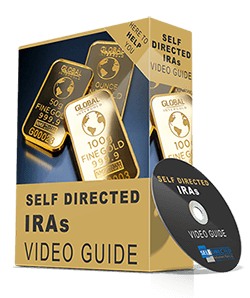Reaching the age of 59½ is a significant milestone in retirement planning. It marks the beginning of a new financial chapter, especially when it comes to accessing retirement savings. Do you know, at this age, the IRS allows you to make penalty-free withdrawals from your 401(k) plans? Yes, it does, but there’s a catch!
This guide aims to break down the complexity associated with withdrawing from 401(k) after 59½, including tax implications, strategies for effective withdrawals, and essential tips to minimize your tax liability. So let’s get started!
Critical Milestones for 401(k) Withdrawals
Understanding the key milestones concerning 401(k) withdrawals can help you navigate your retirement savings more effectively. Here are the primary ages you should be aware of:
-
Age 55
Suppose you leave your job after turning 55. In that case, you can withdraw funds from your 401(k) plan without incurring the 10% early withdrawal penalty. This can be a crucial option if you are looking to transition into retirement a bit earlier than expected.
-
Age 59½
If you withdraw from 401(k) after 59 ½, you have the advantage of making penalty-free withdrawals. However, keep in mind that while the 10% penalty is waived, you still need to account for income taxes on any amounts withdrawn.
-
Age 70½
This age marks the beginning of Required Minimum Distributions (RMDs) for traditional 401(k) accounts. The IRS mandates that you must start withdrawing a minimum amount annually.
Tax Implications of Withdrawing From 401(k) After 59 ½
Withdrawing from 401(k) after 59 ½ is not as straightforward as simply taking the money. All distributions are considered ordinary income, meaning they are taxed at your regular income tax rate. The specific rate depends on your total income, filing status, and other factors.
Because of these complexities, consulting with a tax advisor is highly recommended to navigate your specific tax obligations effectively.
Advantages of Withdrawing From a 401(k) After 59½
While there are tax liabilities associated with 401(k) withdrawals at this age, there are also notable benefits:
-
Possibility for Higher Growth in Retirement Savings
Withdrawing after 59½ allows your 401(k) amount to continue growing. This implies you could have substantially more saved when you decide to take withdrawals, increasing your total financial stability in retirement.
-
Tax Advantages of Deferred Withdrawals
Your 401(k) offers tax-deferred growth, which means you don’t pay taxes on your earnings until you withdraw them. This can lead to a greater balance as your investments increase without incurring immediate tax consequences.
-
Prevention of Early Withdrawal Charges
The main advantage of waiting until age 59½ is that you can withdraw funds without paying the 10% penalty. This might bring great financial relief.
Strategies for 401(k) Withdrawals After Age 59½
Knowing how to withdraw money from 401(k) after 59 ½ can have a lasting impact on your retirement finances. Here are some strategies to consider:
-
Combine 401(k) Withdrawals With Other Income Streams
Consider how your 401(k) withdrawals relate to your total income. If you have additional sources of income, such as Social Security, pensions, or investments, you should consider coordinating withdrawals to reduce your tax burden.
This could entail deferring Social Security benefits to maximize future income while pulling from your 401(k) in the meantime.
-
Specify the Amount and the Rate of Withdrawals
One key issue is when and how much you can withdraw from 401(k) after 59 ½. It’s critical to create a balance between having enough for your immediate needs and enabling your investments to continue growing.
There is a well-known 4% rule that experts advocate. It entails taking 4% of your retirement funds annually. However, this can vary depending on individual circumstances, investment performance, and overall retirement goals.
Evaluate the Influence of Inflation on Withdrawal Amounts
Inflation can reduce the purchasing power of your retirement funds over time. When planning your withdrawals, consider changing them annually to stay up with inflation. For example, if you withdraw $40,000 this year, you may increase the amount to $41,600 the following year to account for a 4% inflation rate.
What are Required 401(k) Distributions or Required Minimum Distributions (RMDs)?
If you don’t take any distributions and reach the age of 70 ½, the IRS steps in and forces you to take a distribution. They are called Required Minimum Distributions (RMDs). The IRS’s rationale is, “Hey, time to pay up – you aren’t getting any younger”. The IRS has a schedule, and they tell you how much your minimum distribution is. This distribution, of course, is considered income and adds to your other income for the affected year.
Assuming your 401(k) is traditional and not Roth, distribution is taxed as income. This distribution is added to your other income for the year and may or may not push you into a higher tax bracket. Thus, it is prudent to seek a tax professional and do some tax planning.
Learn More About RMDs by Age
Discover the specific required minimum distribution rules for your age group.
What is the Tax Rate for Withdrawing From 401(K) Before 59 ½?
Anyone who withdraws from their 401(K) before they reach the age of 59 ½, they have to pay a 10% penalty along with their regular income tax.
However, you can withdraw at the age of 55 without penalty in a circumstance where you cannot be an employee of a company that runs your 401(K). You must have left the company during or after the calendar year when you turn 55. This is also called the rule of 55.
How to Withdraw From 401(k) Before Retirement
If you find yourself in a situation where you need to access your 401(k) funds before reaching retirement age, there are the available options:
-
Take a Quick Exit
Withdraw funds before age 59½. This option comes with a 10% early withdrawal penalty. Thus, it is not the best option unless it is essential.
-
Ask for a Hardship Withdrawal
Hardship withdrawals are permitted in certain circumstances, such as for medical spending, the purchase of a principal residence, or to avoid eviction. However, proof is required, and you may still be subject to income taxes and the 10% penalty, depending on your age.
-
Get a 401(k) Loan
If your 401(k) plan accepts loans, this could be a viable choice. You can borrow against your 401(k) balance and repay it over time, typically with interest. However, suppose you leave your job with an outstanding loan. In that case, the sum may become due immediately, and failure to repay might result in taxes and penalties.
Reaching age 59½ opens up a world of possibilities when it comes to your 401(k) retirement savings. The ability to withdraw funds penalty-free is a significant advantage. Still, it comes with its own set of tax implications and strategic considerations.
By understanding the nuances of 401(k) withdrawals after 59 ½ and implementing thoughtful strategies, you can enhance your financial well-being in retirement.
Do you need help navigating your retirement savings journey and making informed decisions regarding your 401(k) withdrawals
FAQs
Are withdrawals from 401(k) after 59 ½ taxable as income?
Your age does not matter. Distributions from a 401(k) are considered income.
The IRS allowed for pre-tax personal contributions. They also allowed the gains to grow tax-deferred for years. There comes a point when the IRS stops being so generous and wants their tax. This happens when you start to take a distribution from the plan. You in effect become your own paymaster – meaning you can determine the amount of the distribution. If your 401 k contributions were traditional personal deferrals the answer is yes you will pay income tax on your withdrawals. If you take withdrawals before reaching the age of 59 ½, the IRS may also impose a ten percent penalty.
Are Roth 401(k) withdrawals after the age of 59 tax-free?
Qualified Roth 401(k) distributions made after age 59 ½ are normally tax-free. This tax treatment is one of the primary benefits of owning a Roth 401(k). Because contributions are made with after-tax earnings, you must pay income tax on the funds before they enter your account. As a result, eligible withdrawals during retirement are often tax-free.
Can I withdraw a portion of my 401(k) after age 59 without paying taxes?
No, you cannot withdraw just a portion of your 401(k) after age 59 without paying taxes. Withdrawals after age 59 ½ are normally subject to income tax.
Is there an income limit or restriction on 401(k) withdrawals after the age of 59?
There are no income caps or restrictions on 401(k) withdrawals once you reach 59 ½, unlike contributions.
How would 401(k) withdrawals after age 59 affect my Social Security benefits?
401(k) withdrawals after age 59 have no direct influence on your Social Security payments. These benefits are not based on your 401(k) investments. They are determined by your earnings history and the age you choose to begin receiving them.
Can I postpone 401(k) withdrawals beyond age 59 to decrease taxes potentially?
Yes, you can postpone 401(k) withdrawals after age 59 to reduce taxes. By not taking funds immediately after reaching 59 ½, you can allow your investments to grow tax-deferred and increase your retirement savings.



